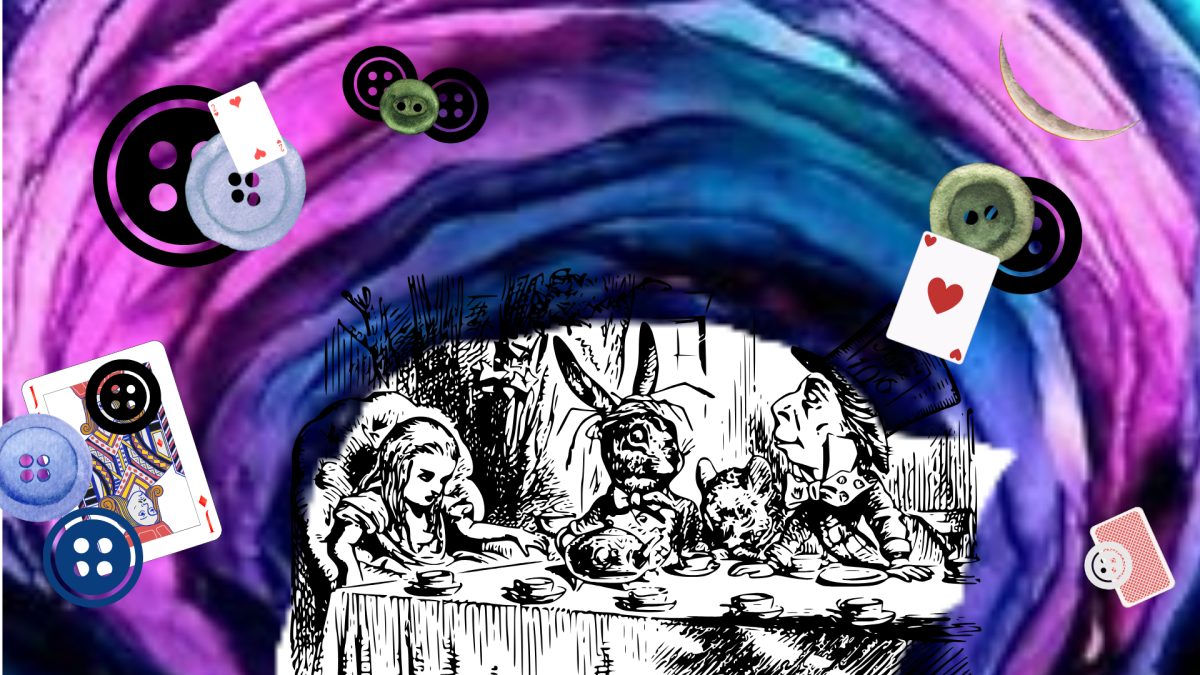Editor’s note: This review contains spoilers for “Persuasion.”
In her film directorial debut, Carrie Cracknell attempts to modernize Jane Austen’s 200-year-old story, and in the process, loses her original protagonist almost entirely.
While the film is enjoyable enough to watch due to its cinematography and several skillful performances from the cast, poor writing and questionable inclusion of modern elements causes Cracknell’s adaptation to lose track of the original goal of the story.
Portrayed by Dakota Johnson, Anne Elliot is the second daughter of the vain and bankrupt baronet, Sir Walter Elliot of Somersetshire. She is not a favorite of her father nor her two narcissistic sisters despite her intelligence, kindness and wit. Eight years after being persuaded out of an engagement to Frederick Wentworth, a common sailor with no status or fortune portrayed by Cosmo Jarvis, Anne is still an unmarried woman. When Sir Walter’s bankruptcy forces the Elliots out of their home at Kellynch Hall, the had-been lovers undergo an awkward and fraught reunion.
The script attempts to incorporate the witty dialogue Jane Austen is known for but comes up short in many places, with most jokes relying heavily on sarcasm or hyperbole rather than true wit. The humor is typically interjected through the protagonist breaking the fourth wall, often interrupting the somber tone of the overarching story.
Cracknell introduces Anne as a self-pitying and sarcastic middle child, still very explicitly in love with now-Captain Wentworth. She is awkward and inwardly brooding, and offers Johnson yet another role to add to the list of scripts that failed to match the actress’ potential.
That being said, Johnson did well with what was given to her, and had this not been an adaptation, Anne’s awkward flaws would have been acceptable and even endearing if they were not so staunchly accompanied by self-deprecation. The Anne Elliot Austen fans have long known is intelligently convicted, while remaining humble and well-mannered. Her strong moral and societal convictions act as the basis of her internal conflict throughout the novel, a thoughtfulness that is absent from the adaptation. Cracknell’s Anne lacks class and is, as Wentworth rightfully criticized, not kind but quietly judgemental.
Though drastically different from her self-indulgent family members, the traditional Anne Elliot is more morally pragmatic than she is nonconforming. She recognizes the repulsive narcissism of her family, yet respects “family” a great deal and is horrified when her cousin, Mr. William Elliot, heir to the baronetcy, attempts to sabotage her father’s position.
Ironically, in the film this goal which Mr. Elliot, portrayed by Henry Golding, readily admits to Anne, is the first thing that peaks her interest in him (thus setting up the obligatory rom-com love triangle). From the audience’s perspective, neither Elliot or Wentworth seems like a match for Anne herself.
Jarvis’s portrayal of Wentworth falls somewhat short of believability. Though supposedly charming and charismatic, Wentworth comes off as brooding and clearly heartbroken from the start. The tension between Wentworth and Anne is laid out so explicitly through multiple of their early conversations that it lacks any nuanced escalation. From their initial reunion, there is no reason to doubt which relationship will ultimately prevail.
Additionally, there’s something absurd about modern slang used by characters so unquestioningly ready to marry their cousin. In addition to indulgent breaking of the fourth wall, Cracknell includes anachronisms such as “He’s a ten. I never trust a ten,” and “Now we’re worse than exes, we’re friends,” the latter of which was brutally adapted from one of the most famous lines from the novel reading “now they were strangers; worse than strangers, for they could never become acquainted.” The language causes all interactions to feel juvenile, an insult to Austen’s most mature novel.
“Persuasion” was the last novel Austen wrote and reflects a gravity beyond her other works. At 27, Anne Elliot deals with conflict between emotion and moral responsibility, the urgency of the ever-declining status of an unmarried woman and questions of what her core convictions are and who influences them. Romance is secondary to the novel’s self-reflection, a maturity that is ditched in the film.
If Cracknell wanted to modernize the story, Austen left her plenty of opportunity to do so in the novel’s admittedly limited discussions of class. Despite being a central theme of the novel and thus the film, “Persuasion” is in no way revolutionary (even for Austen’s work) when it comes to breaking through class barriers. Anne has endured eight years of inner conflict as to whether she made the right choice in turning down Wentworth.
The story resolves, however, without Anne being forced to address or resolve any of her own moral conflicts. Wentworth is now conveniently a captain with a suitable fortune, who no one is going to persuade her against marrying. Her cousin is revealed as slimy and conniving, relieving her of the decision between the two men. Anne’s happy ending is of no thanks to her own convictions, but to the sudden compatibility of her feelings and her family’s acceptance.
While arguably progressive through a nineteenth century lens, the story is worn and provided the perfect opportunity for a new perspective that could have captivated a new audience had Cracknell chosen to take it.
The one moment of reprieve in the writing comes during a monologue following news of Wentworth’s engagement to someone else. While sitting in the bath, Anne reflects that she has always imagined herself graceful in the face of difficulty, holding together “quite impressively” despite “suffering cosmic loss,” but then admits to her own pride and anger. This is a moment of deep humanity not masked in sarcasm, which allows us to see the thoughtful Anne Elliot we are familiar with.The moment dissipates quickly, however, and returns to less provoking narration.
The ending is consistently disappointing, leaving us with the predictable message that “it is okay to find love on your own terms, however unorthodox,” again denying both Anne and the story itself the complexity it has embodied for over 200 years.














